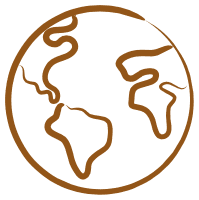Botswana
safari, wildlife, culture, landscapes, diamonds
About Botswana
Culture and Religion
Where to go
How to get there
Visa Requirements
Travelling Budget
About Botswana
Botswana, a landlocked country in southern Africa, is renowned for its abundant wildlife, stunning landscapes, vibrant culture, and thriving economy. With a population of approximately 2.3 million people, Botswana is known for its political stability, good governance, and commitment to preserving its natural resources.
One of the main highlights of Botswana is its diverse and impressive wildlife. The country is home to the largest elephant population in Africa, as well as numerous national parks and game reserves where visitors can spot lions, leopards, cheetahs, rhinos, giraffes, buffalo, and a wide variety of bird species. The Okavango Delta, a unique and breathtaking inland delta, is a must-visit destination for nature lovers.
Apart from its wildlife, Botswana is celebrated for its rich cultural heritage. The traditional lifestyle and practices of the different ethnic groups, including the San (Bushmen), the Batswana, and others, have been preserved and can be experienced through storytelling, dance, music, and crafts.
While agriculture and mining, particularly the diamond industry, have been historically significant sectors of Botswana’s economy, the country has also focused on diversifying its economy in recent years. Tourism, financial services, manufacturing, and technology are emerging sectors that contribute to the country’s economic growth.
Botswana places great importance on education and healthcare, resulting in high literacy rates and one of the most efficient healthcare systems in Africa. The government has made significant investments in infrastructure development, which is evident in well-maintained roads, modern cities, and reliable utilities.
In summary, Botswana is a country that offers a unique blend of wildlife, culture, natural beauty, and economic prosperity. It is a destination that welcomes visitors with warmth, and its commitment to preservation and sustainable development make it a model for responsible tourism.
Culture and Religion
Botswana is a country with a diverse cultural landscape and a rich religious heritage. The predominant ethnic group in Botswana are the Tswana people, who have a profound influence on the country’s culture and traditions. However, there are also significant populations of other ethnic groups such as the Kalanga, San (Bushmen), Herero, and others, each with their own cultural practices.
The Tswana people have a strong sense of community, and communal values form the basis of their culture. Respect for elders, hospitality, and a deep connection to the land are core aspects of Tswana culture. Traditional music, dance, and storytelling are integral parts of their cultural expression. Setswana, the official language of Botswana, is widely spoken, although other languages like Kalanga and Sarwa are also recognized.
Religion in Botswana is diverse, with the majority of the population identifying as Christians. The Christian faith, particularly belonging to various Protestant denominations like Methodism, Anglicanism, and African Independent Churches, is prominent. However, traditional indigenous beliefs and practices, which involve ancestral worship and a connection to nature, also remain significant.
The San people, one of the oldest indigenous communities in Botswana, have preserved their unique cultural practices. They have a deep knowledge of their surroundings and rely on hunting and gathering for their livelihood. The San are known for their rock art, which showcases their spiritual beliefs and their intimate relationship with the natural world.
Overall, Botswana’s cultural landscape is dynamic and diverse, with a blending of traditional and modern influences. The country welcomes cultural diversity and celebrates its heritage through various festivals and events, providing visitors with an opportunity to immerse themselves in the vibrant traditions and customs of the people of Botswana.
Where to go

Okavango Delta
One of Botswana’s most iconic highlights, the Okavango Delta is a remarkable inland delta teeming with wildlife. Take a mokoro (traditional canoe) ride through its waterways or go on a safari to witness the diverse flora and fauna that the delta hosts.

Chobe National Park
Known for its massive elephant herds, Chobe National Park offers excellent wildlife viewing opportunities. Take a boat safari along the Chobe River to see elephants, lions, hippos, and various bird species in their natural habitat.

Makgadikgadi Pans
This vast salt pan complex, encompassing the Makgadikgadi Pans National Park, offers a unique desert-like landscape in the heart of Botswana. Visit during the wet season to witness the arrival of migratory birds or embark on a quad bike expedition across the pristine salt flats.

Central Kalahari Game Reserve
One of the largest game reserves in the world, the Central Kalahari Game Reserve showcases the remarkable adaptability of wildlife in arid environments. Engage in guided game drives and witness predators such as lions, cheetahs, and hyenas as they navigate through this remote wilderness.
Note: These are just a few highlights that showcase the incredible natural beauty, wildlife, and cultural heritage Botswana has to offer. The country’s commitment to conservation and responsible tourism ensures an authentic and unforgettable experience for visitors.
How to get there
Getting to Botswana is relatively straightforward, with several options available depending on your location and preferences. Here are some common ways to reach Botswana:
1. By Air: Botswana has several international airports, including Sir Seretse Khama International Airport in Gaborone and Maun International Airport. These airports are well-connected to major African cities such as Johannesburg, Cape Town, Nairobi, and Addis Ababa. From there, you can book a domestic flight or arrange ground transportation to your desired destination within Botswana.
2. By Road: Botswana shares land borders with several countries, including South Africa, Namibia, Zimbabwe, and Zambia. You can enter Botswana by road through these border crossings. The road networks in Botswana are generally well-maintained, making it convenient to travel by car or bus. However, it’s important to check visa requirements and any necessary travel permits before embarking on a road trip.
3. By Rail: Botswana has a limited but efficient rail network, connecting it to neighboring countries such as South Africa and Zimbabwe. The luxury tourist train, the Rovos Rail, also offers a unique and comfortable travel experience to and from Botswana.
4. By Water: Botswana is landlocked, so there are no direct water routes; however, some travelers choose to combine their visit to Botswana with a cruise or ferry ride on the Zambezi River or the Chobe River, which can provide access to the country’s northern regions.
Before planning your trip, it’s important to research visa requirements, travel advisories, and any necessary vaccinations. It’s also advisable to book your accommodations and transport in advance, especially during peak tourism seasons. With proper preparation, reaching Botswana can be a convenient and enjoyable experience.
Visa Requirements
Visa requirements for Botswana vary depending on your nationality and the purpose of your visit. Here are some general guidelines:
1. Visa-Free Entry: Citizens of certain countries do not require a visa to enter Botswana for tourism, business, or transit purposes. These countries include most European Union countries, the United States, Canada, Australia, New Zealand, South Africa, and many more. The allowed duration of stay varies, usually ranging from 30 to 90 days.
2. Visa on Arrival: Some nationalities are eligible for a visa on arrival at Botswana’s ports of entry. This option is available for travelers visiting for tourism or business purposes. The visa on arrival is generally valid for a stay of up to 90 days, but it is advisable to check the specific requirements and limitations for your country.
3. Advance Visa: Citizens of countries not eligible for visa-free entry or visa on arrival must obtain a visa in advance from a Botswana embassy or consulate in their home country. This is typically required for purposes such as employment, study, research, or volunteering.
It’s important to note that visa requirements and regulations can change, so it’s essential to check with the nearest Botswana embassy or consulate in your home country or consult official government sources for the most up-to-date information.
In addition to a valid passport, immigration authorities may require proof of return or onward travel, proof of sufficient funds to cover your stay, and confirmation of accommodation arrangements during your visit to Botswana. It may also be necessary to provide documentation such as invitation letters, travel itineraries, or employment letters, depending on the purpose of your visit.
Remember to allow ample time for visa processing and make sure your passport has sufficient validity for the duration of your intended stay in Botswana.


Travelling Budget
The cost of traveling to Botswana can vary depending on various factors such as accommodation choices, transport options, activities, and personal preferences. Here are some estimated costs to consider when planning a travel budget for Botswana:
1. Accommodation: The cost of accommodation varies depending on the type and location. In major cities like Gaborone or Maun, you can find mid-range hotels or guesthouses starting around $50-$100 USD per night. Luxury lodges or safari camps in prime wildlife areas can range from $300-$1000 USD or more per night.
2. Transportation: Domestic flights within Botswana can range from $100-$300 USD one way, depending on the distance. Alternatively, bus travel is a more budget-friendly option, with prices averaging around $10-$50 USD for intercity travel. Renting a car is also possible, with prices starting from $50-$100 USD per day, excluding fuel costs.
3. Food: Eating out at local restaurants or street food stalls can be affordable, with meals ranging from $5-$15 USD. If you opt for upscale or international dining, prices can rise to $20-$50 USD per meal. Groceries and self-catering options are available, allowing you to reduce food expenses.
4. Activities: Entry fees for national parks and game reserves vary, ranging from $10-$30 USD per person per day. Additional activities such as guided safaris, boat trips, or cultural experiences can cost extra and vary according to the operator and location. It’s advisable to research and budget for specific activities you wish to participate in.
5. Miscellaneous: Other expenses to consider include visa fees (if applicable), travel insurance, souvenirs, and incidentals. Budgeting around 10-20% of your total trip cost for unforeseen expenses is a good practice.
While these estimates provide a general idea, it’s essential to research and plan based on your specific itinerary and travel preferences. Additionally, prices can vary depending on the season, demand, and any special promotions or discounts available.
What makes your journey easier
Everything you need to know about what to bring to make your travels easier, more safe and fun
Be Mindfull
Gadgets
Gear
Insurance
Visa














![Botswana 1x [gaborone]](https://travelhd.nu/wp-content/uploads/2023/08/Botswana-1x-gaborone-scaled.jpg)








